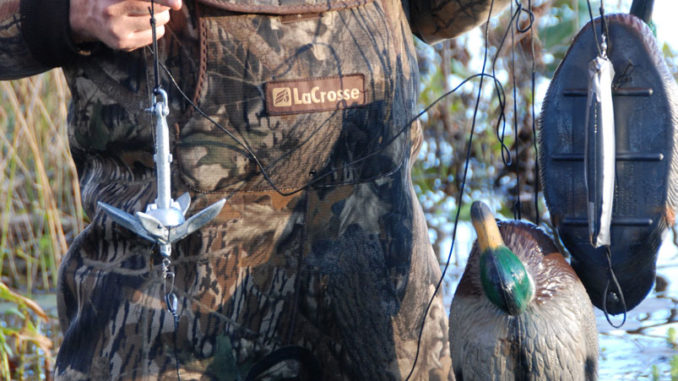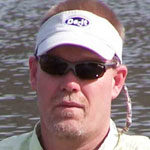
There’s no disputing that a life-like decoy spread is often the difference between a limit of ducks and going home wanting. Ducks are socially oriented animals that flock together, fly together, feed together and rest together.
A generation ago, veteran waterfowlers referred to their decoys as blocks. Even with advanced painting and materials, they might as well be blocks if there’s no sign of life to them.
Spinning-wing decoys became the rage during the late 1990s and early 2000s. Some hunters said they were too effective, charging unfair-chase practices and overharvest of juvenile ducks. Along the way, the old-timers never flinched. When they wanted their blocks to move, they just tied a string to them.
A jerk cord might be one of the oldest duck hunter tricks in the book, as well as the most-effective. Jerk cords are readily available on the commercial market or can be made using a small (2-pound) folding weight, a length of bungee cord, a few 5/0 snap swivels, and a roll of decoy line or paracord.
To make the rig, tie a 4- to 6-foot length of elastic cord or bungee to the folding weight. This gives the cord room to stretch forward and spring backward. Thread three or four snap swivels onto the end of the decoy line, spacing them 3 to 4 feet apart, and tie the swivels in-line, leaving a tag end that will be tied to the other end of the bungee.
When setting up your decoy spread, allow enough room between static decoys to put out the jerk line. Unfold the anchor and entrench it in the bottom and play the line back to your shooting position. Drill a hole in the keel of each decoy edge and snap the swivel through the hole.
When ducks approach your spread, pull the jerk cord sharply forward, hiding your arm motion, and the decoys will swim forward. Release the line and the blocks will swim back, adding motion to the entire spread.




Be the first to comment